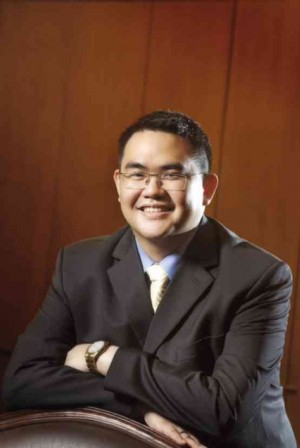IdeaSpace was set up by First Pacific Group of Companies to help the Philippine economy grow through science and technology, foster a spirit of technopreneurship and encourage more young people to become entrepreneurs, engineers and scientists.
Its goal is to call the world’s attention to the Philippines, particularly the local innovations that changed lives.
IdeaSpace president Earl Valencia, who became the first innovation awardee of the Mansmith Young Market Masters Awards (YMMA), shares his thoughts about incubating innovation.
Question: You have a Stanford MBA and worked at Cisco’s Emerging Technologies Group at its Silicon Valley global headquarters in the United States. What convinced you to come back to the Philippines?
Answer: Coming back to the Philippines was not an easy decision.
I had what most people called a “dream job.” I was in the global HQ of a Fortune 50 tech company and my mandate was to incubate the future of networking. What drew me back is a conversation with my current boss, Manny Pangilinan. He just asked me “why wait until you’re 60 before you fulfill your dream of using your talents to help the country?”
Six months after that conversation, I was on a plane with my wife and two kids, leaving what was a good life in America to try to at least make a small difference in the Philippines through what I know best—technology.
Q: As an early stage incubator, who are you targeting? Where do you find them? How much funding has been committed to the incubator program?
A: With a five-year commitment of half a billion pesos, IdeaSpace looks for startups all over the Philippines—from North Luzon to Mindanao. In fact, we have applicants from almost every region in the Philippines. We run an annual competition to find the top 10 best commercializable science and technology ideas to fund each year. In 2015, over 1,000 teams want to be part of our incubator program—most are from the Philippines, but some come from 10 other countries.
Q: How many startup companies have you incubated and funded? In what industries are these? How many years do you expect to get your first profit and ROI (return of investment)?
A: We have funded about 28 companies, and we expect to fund 10 to 12 more in 2015. We have deployed capital in a variety of companies—from water, social technology, clean energy, mobile apps, business to business technologies and more. We try to think of what can be started here and scaled to the world. Investing at an early stage is a long game. We will have gains and losses, but we hope that, in five to seven years, we would have bet on the winners.
Q: You have a point of entry strategy with students. Tell us about your “Geeks on a Beach” and “Geeks on a Plane” programs?
A: We host a lot of events to make people aware of startups in the Philippines. We have founded and sponsored the Geeks on a Beach conference, which is the country’s annual startups conference on a beach—first in Boracay, then Cebu, and this year it might be in Palawan.
This highlights to the world, especially foreign investors, that the country’s innovations are worth taking a look at. Geeks on a Plane is where we host 30 foreign investors to visit our ecosystem here in Manila and hope to form connections with top Silicon Valley entrepreneurs and VCs.
Q: You have a dual appointment as VP for corporate development and innovation of Smart Communications. What innovation are you proudest of to date?
A: In the end, my proudest Innovation is the formation of IdeaSpace—a platform born from an ideato help catalyze the innovation ecosystem in the Philippines.
We can talk about innovations. But if you cannot create an enabling ecosystem to support them, then it will not be sustainable.
I am also proud of all the people who take a chance to make their ideas come to reality, the 2,500 applicants and the 28 companies we have invested in over the past 25 years.
Q: Your job requires you to enable collaborations. Which collaborations are you most excited about?
A: I was lucky to build collaborations with many top companies, like Microsoft, Amazon, Netsuite, government agencies like the DOST and IPOPhil, and universities such as AIM, Harvard, MIT and Stanford.
I can’t say I am most excited about anything, but I love that we built a bridge between top business schools in the world and get MBA students to help out our cause. Maybe one day, they will come back to the Philippines and help our economy as well.
Q: In your experience, what are keys to success of collaborations and alliances?
A: Always think first of what you can do to help your partner before you think of how they can help you. You give first before you get.
Q: Your work has been at the intersection of business, technology and economic development. You were awarded the 2014 Young Global Leader of the World Economic Forum in Switzerland and, recently, as the first innovation awardee of the 2015 Mansmith Young Market Masters Awards (YMMA). What do these acknowledgements mean to you?
A: Awards, I hope, are a result of the impact you and the many people in the organization built over time. I got these awards, but the people who work with me in my team, the startups and our ecosystem should share the award with me. One day, innovation won’t be a special award, but something mainstream in our culture.
(Josiah Go is chair of marketing and innovation training company Mansmith and Fielders Inc. For the complete interview, as well as interview with other thought leaders, visit www.josiahgo.com.)
